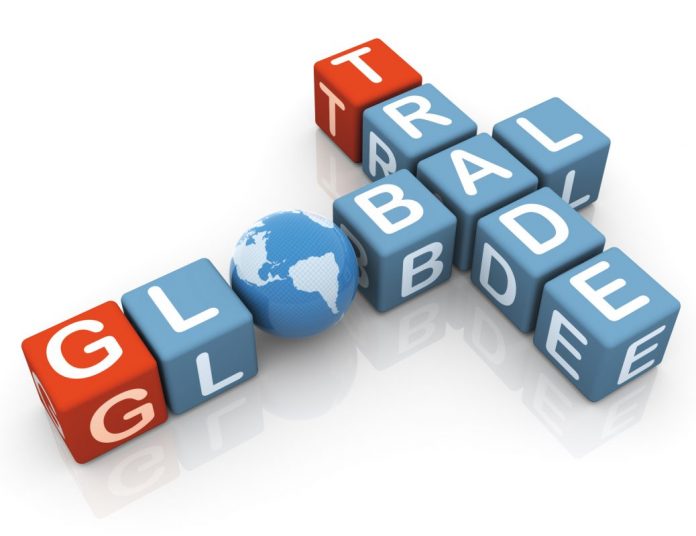In an interview with AG, Keith Rockwell from the World Trade Organization explains how they help countries to expand trade and boost economic growth worldwide…
Trading between countries is vital in order to create stable relationships worldwide and to boost the economy. Trade can be driven by a number of factors and can play an important part in creating employment opportunities. Successful trade can provide economic stability for countries that are still recovering from the recession, which had a detrimental effect on many countries, not least those in Europe. This was due to the amount of small economically active countries that trade amongst themselves.
The World Trade Organisation (WTO) works with countries to boost further trade growth by settling disputes and by negotiating international rules to reduce barriers that obstruct trade. As an intergovernmental organisation, the WTO provides a forum for its 160 Member governments to discuss trade issues, examine trade policies and seek to resolve differences in a transparent and open forum. In an interview with Editor Laura Evans, the Director – Information and External Affairs Division at the WTO, Keith Rockwell, explains the importance of trade growth and what the organisation does to help support it.
“The most important thing to understand is that trade is a subset of overall economic activity. When there is greater economic growth there tends to be greater trade. It used to be that the trade expansion was 2 to 3 times greater than overall economic expansion, but that’s proving to be less the case since the financial crisis in 2008/2009,” says Rockwell. “What we are seeing clearly is a slowdown in the expansion of trade, which is again largely due to the fact that we have not had great economic expansion, and that is particularly true in Europe, which has a disproportionate weight when it comes to trade activity.” Trade expansion happens when consumers buy more goods – imported goods and domestically produced goods. Trade growth can certainly help with economic recovery and plays a vital role in helping countries to get themselves out of poverty.
Rockwell continues: “When we had the crisis in Asia in the late 90s, it was trade that actually helped propel these countries out of the recession.
“We have seen this also, for example, in China. Their rise from quite a poor country to a middle ranking country in terms of the raw numbers was very impressive. They are now the second largest economy and the largest trading country in the world. “They have lifted about 500 million people from poverty, and trade has been a very important reason why that has happened.”
Although China has been successful in its trading endeavours, there are still some countries where the system could be improved. Developing countries, for example, don’t have the capacity to trade. Rockwell explains why: “There are a number of reasons why trade can be stymied – in some cases it can be because of trade restrictions, like tariffs or quotas, or other types of restrictive measures.
“The principle reason many countries, particularly in sub -Sahara Africa for example, have not participated in the trading system to the extent they would like has to do with their overall capacity to trade. “The productive capacity – whether it is communications or energy – is hampered by under developed networks, and that makes it more difficult for them to participate in global trade.”
The WTO can help developing countries, in Africa and elsewhere, by reducing trade barriers and assisting them in their efforts to participate effectively in the negotiation of new agreements. Since the WTO was established in 1995 they have helped bring in 30 or so countries as members. They also oversee a programme called Aid for Trade, which helps the least developed countries.
The initiative assists governments in developing countries to develop their potential to make trade an important tool for development.
“This is something that the World Bank, the international Monetary Fund, the UN Development agencies, and the regional development bank, have all participated in.
“It is a means of trying to coordinate our aid programmes so that the funds go where they are needed, preventing duplication of effort. About $40bn has been committed every year for the past 8 or so years to the initiative.”
At the moment Rockwell explains that overall growth is down. It usually stands at about 6% or more per year, but in the last 3 years it has been around 3 or 4%. There is still more to do in order to help boost it. He suggests one of the ways to do this is to address restrictions.
“This is a key element and the way to do that is to negotiate trade agreements. Another important element to that is to improve the productive capacity in developing countries so they can participate.
“In those countries what you have is consumers that are often quite poor and you need to find markets that have consumers with more money to spend. These are in the developed countries – so that is an important way to help with development and poverty alleviation.
“We hope this year that we can get a road map for concluding the long running Doha round of trade negotiations. This would certainly have an impact on trade and encourage investment in many places.
Rockwell concludes: “Many of the trade barriers we see today adversely affect developing countries. So we think it would be important to address these through this agreement, which is really oriented towards development and developing countries. We think that would be a great way to celebrate 20 years.”
Keith Rockwell
Director, Information and External Relations Division
World Trade Organization
www.wto.org











